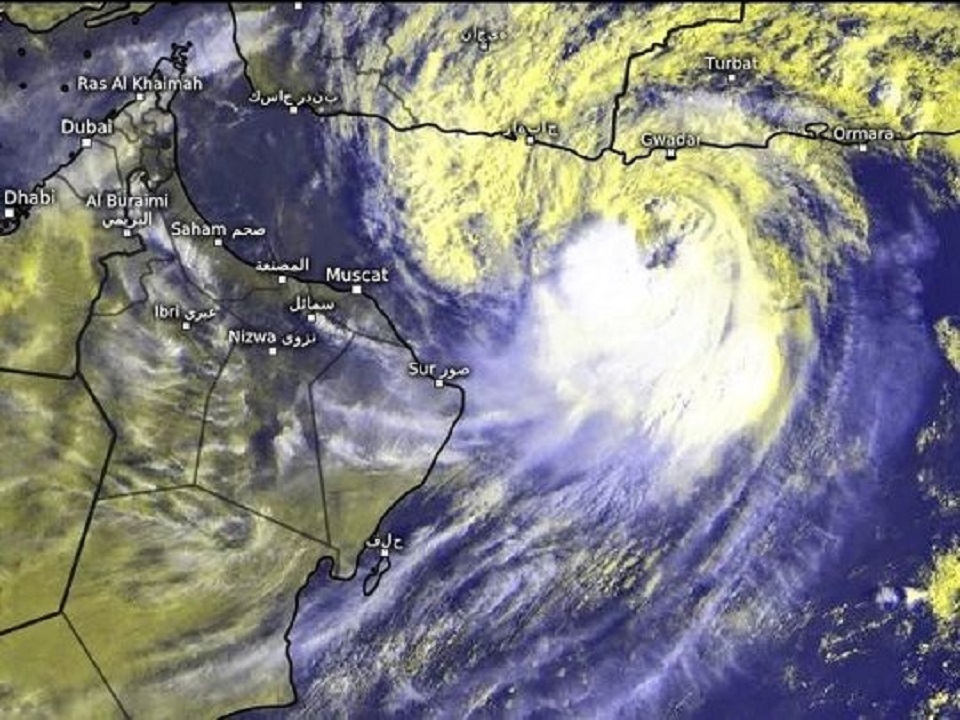The National, Emergency, Crisis and Disaster Management Authority (NCEMA), has affirmed the readiness of all state agencies to monitor weather conditions, and follow up on the latest developments of the tropical cyclone ‘Shaheen’.
This came at a media briefing wherein Dr Taher Al Ameri, the spokesman for the NCEMA, said that the UAE is noted for its proactive approach in crisis management. He urged the public not to visit beaches and valleys during the upcoming period.
“As a precautionary measure and to ensure the safety of everyone, it is prohibited for the public to visit beaches, valleys and lowlands during the upcoming weather conditions,” he added.
He noted that NCEMA teams are considering moving to distance learning instead of the face to face system in schools and universities depending on the weather conditions in each emirate.
RELATED STORY: Netizens share troubling experiences as sandstorms, heavy rain lash out in UAE
He called on the public to exercise caution in such weather conditions, and take information from official sources only to avoid legal responsibility.
The spokesman urged those living in the eastern coastal areas, to follow all procedures and measures as announced by the competent authorities at the local level.
“The competent authorities, in coordination with the National Center of Meteorology, are following up on the tropical situation, its movements, and the extent of its impact on various regions of the country. It is expected, according to the forecasts of the National Center for Meteorology and Seismology, that some eastern coastal regions of the country will be affected from tomorrow, Sunday, October 3, until Tuesday, October 5, and the official spokesman for the National Center of Meteorology will give more details about it,” he said.
“We would like to reassure everyone that all competent authorities are on high alert to deal with the upcoming tropical situation, and take all proactive and preventive measures to mitigate its impact on the country,” he added.
“Since Tuesday September 28th, all competent authorities have been carrying out monitoring and follow-up operations. NCEMA invited all parties concerned to a meeting to discuss all potential scenarios and their impact on the country,” he noted.
The National Emergency, Crisis and Disaster Management Team met first on Thursday, September 30, 2021, in order to boost preparedness at the country level and take all proactive measures to ensure public safety, he explained.
“The National Emergency, Crisis and Disaster Management Team convened their second meeting today to follow up on the readiness of all parties concerned and assess the tropical situation, in coordination with the emergency, crisis and disaster management teams nationwide.”
As a proactive measure to ensure the safety of all community members, he continued, precautionary arrangements will be announced to be adopted during the movement of Tropical Cyclone Shaheen in the affected areas, most prominent of which are barring visits to beaches and the sea and avoiding river valleys and low-lying areas.
“We urge all community members, specifically those living in the eastern coastal areas, to comply with all procedures and measures announced by the competent authorities. We also underline the central importance of ensuring the safety of all segments of society, and we point out that all national and local teams concerned, along with police authorities, and vital facilities are fully prepared to take the necessary measures to ensure your health and safety,” he said.
READ ON: ‘Apocalyptic?’: Dust storm covers cities in Brazil
He affirmed the continuity of electricity supply and critical operations in all areas that may be affected by the tropical situation, especially in hospitals and their affiliated facilities. “Directives have been made to remove mobile construction cranes and fast secure volatile objects before the onset of the impact of the tropical cyclone, in order to avoid any injuries.”
“We would like to emphasise that the safety of all citizens and residents is the first and foremost priority of our wise leadership and of all the parties concerned with the emergency, crisis and disaster management system. We also accentuate that all competent departments are all on a heightened state of alert and preparedness to handle the situation.”
For his part, the spokesman for the National Centre of Meteorology (NCM), Dr Mohamed Al Abri said, “Based on the continuing follow-up and real-time monitoring of weather conditions in the country, and thanks to the readiness of all state agencies and the constant communication between them, all effects will be dealt with quickly and professionally.”
He emphasised that NCM is monitoring the tropical situation around the clock, calling on the public to follow the bulletins and reports issued by the center, and adhere to the instructions and warnings made by competent authorities.
“The tropical cyclone “Shaheen” was centered northwest of the Arabian Sea at latitude 24.3 north and longitude 60.9 east, accompanied by various formations of clouds interspersed with cumulus rain clouds of different intensity and strong winds on the Arabian Sea with a speed around the center ranging from 116 to 140 km/hr,” he said.
“The rain will lead to the flow of valleys, and water will gather in some lowlands. The winds will be active to strong, causing dust, which will reduce horizontal visibility. The cumulus clouds might be accompanied by lightning and thunder sometimes,” he added.
“The technical team of the Center is working in full swing around the clock to analyze data and make carefully studied forecasts to share it with other concerned authorities so as to take the necessary precautions and effectively deal with any possible effects on the country,” he noted.
According to NCM’s latest forecasts, the movement of Tropical Cyclone Shaheen will continue towards the coasts of the Sultanate of Oman during the next 24 hours, and that by Sunday afternoon and evening October 3, some regions of the country will be affected by the extension of the tropical situation, especially the eastern regions, which include the Al Ain and the southern regions and extending towards some central regions, where convective clouds will increase, associated with rains of different intensity that lead to the flash flooding in the valleys and torrents and water will accumulate over some low areas.




